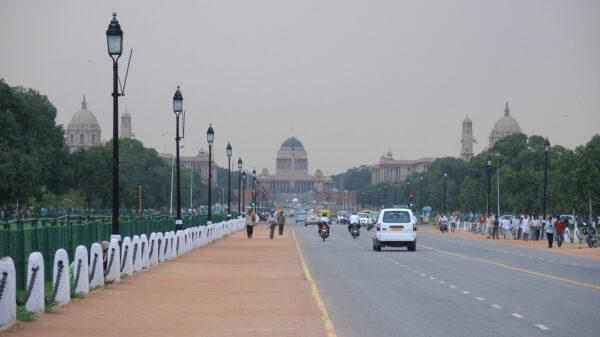Staff writer Mehmet Yusuf Temur points out why the upcoming Polish elections have so much riding on them and the controversies surrounding them.
Poland’s upcoming parliamentary elections scheduled for October 15, 2023, have become the focal point of national and international attention. This electoral contest, one of the most significant since the country’s transition to democracy in 1989, is marked by profound political divisions. The incumbent PiS party (the Polish acronym for Law and Justice Party), currently in a coalition with smaller satellite groups forming the United Right, seeks a third consecutive victory, aiming to further its vision of a centralised, nationalistic state and challenge what it perceives as bureaucratic overreach from Brussels. In contrast, the democratic opposition, led by Donald Tusk’s Civic Coalition (KO), alongside the Left party and the centre-right Third Way, strives to halt any potential backslide into authoritarianism and the possibility of Poland’s exit from the European Union. The stakes in this election are undeniably high.
PiS’s desire for victory extends beyond their political vision; it also carries significant personal implications for many within the party. After eight years marked by comprehensive constitutional changes and political controversies, involving corruption allegations, a loss in this election could mean an end to not only their political influence but also potential legal consequences for certain party members. Thus, for a significant portion of PiS supporters, electoral defeat could have a severe impact.
However, questions about the fairness of these elections have arisen. This analysis delves into several key aspects of the election process that have raised concerns about fairness. It’s important to note that these issues are interconnected and should be considered collectively.
Pork-Barrel Politics
While this practice exists to some extent in various democracies, PiS has been particularly active in employing policies aimed at gaining the favour of voters through various financial incentives. Given the significant state control over the economy in Poland, with many major companies and banks having state ownership or state majority shareholding, opportunities for this type of politics are ample. This includes substantial increases in family subsidies, the construction of toll-free highways, reductions in electricity rates, bonuses for teachers, and extra pension payments for retirees. Furthermore, state-owned companies, such as Orlen, have been lowering petrol prices, and the central bank has cut interest rates, raising concerns about potential economic repercussions and inflation.
Changes in the Electoral Law
PiS introduced amendments to the electoral code in January 2023, despite a conventional practice of not altering election rules shortly before an election. These changes included an increase in voting commissions in smaller population districts, which happen to be strongholds of PiS’s older voter base. Additionally, new rules require the commission’s president or a nominated representative to personally read and display each ballot to all commission members, eliminating the possibility of subdividing the task. Moreover, all vote counting, result recording, and transmission to the central electoral bureau must be completed within 24 hours, raising concerns, especially for Polish expatriates, about the potential impact on their votes due to limited resources in foreign districts.
Media Imbalance
Poland’s public media, despite their ‘public’ designation, are often criticised for their one-sided, pro-government content, providing limited or no coverage of opposing views, corruption allegations, or foreign criticisms of the government. Private commercial networks, too, have been accused of bias, possibly due to their reliance on advertising funds from state-owned companies. Orlen’s acquisition of numerous local newspapers, which subsequently promote pro-PiS narratives, has further raised concerns about media diversity and impartiality.
Referendum
PiS has combined the upcoming elections with a referendum on four contentious issues, namely whether to admit more migrants, demolish the border barrier with Belarus, sell state assets and raise the pension age. The phrasing of these questions appears to be biased, implying that opposition parties support policies that they do not advocate. This risks turning the referendum into a tool for bolstering partisan rhetoric rather than consulting citizens on proposed legislation. Furthermore, the referendum allows PiS access to additional campaign funding beyond normal election spending limits, potentially creating an uneven playing field.
Judicial Independence
PiS has also established the Chamber of Extraordinary Control and Public Affairs, composed of judges sympathetic to the party, to handle election disputes. This move has raised concerns about the impartiality of this body.
In its Rule of Law Report 2023, the European Commission also raised concerns about the general independence of the Polish judiciary. The report indicated that although Poland has taken steps to enhance judicial independence, rulings by the European Court of Justice (ECJ) and the European Court of Human Rights (ECtHR) have confirmed existing worries, and the issues remain regarding the National Council for the Judiciary and the compliance of some Supreme Court judges. The report also highlights challenges in the separation of powers and the independence of the prosecution service from the government.
Conclusion
The upcoming Polish parliamentary elections hold immense significance, not only for the nation itself but also for Europe and the broader global community. At the heart of this electoral contest are fundamental questions about the direction of Poland’s democracy, its relationship with the European Union, and the principles that underpin its political system. The stakes are high, as the choice made by Polish citizens will influence the trajectory of their nation for years to come. It is crucial that these elections be conducted fairly and transparently, ensuring that the will of the people is accurately reflected. The importance of this election extends beyond Poland’s borders, as it serves as a poignant reminder of the challenges democracies worldwide face in maintaining the rule of law, ensuring media freedom, and safeguarding the integrity of electoral processes. As the world watches closely, the outcome of these elections will not only shape Poland’s future but also contribute to the ongoing discourse on the health and resilience of democratic institutions in an ever-changing global landscape.



















